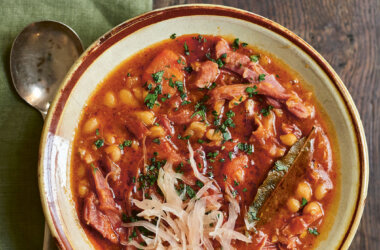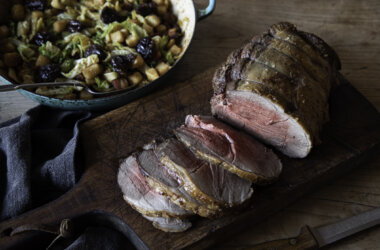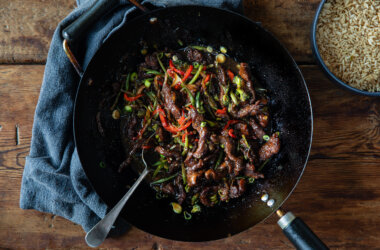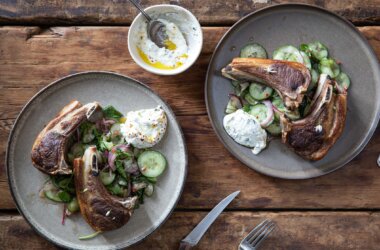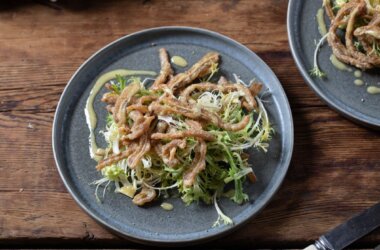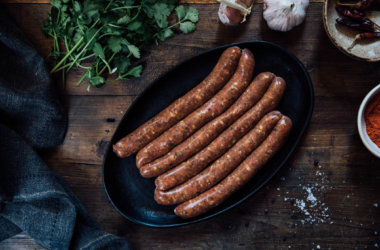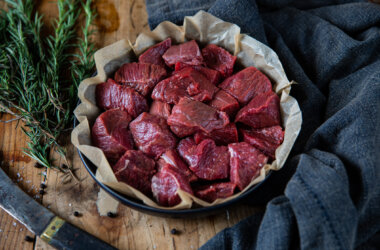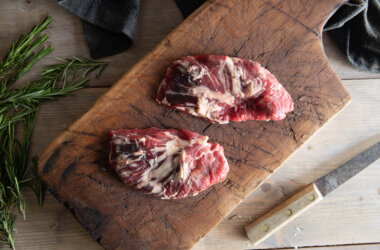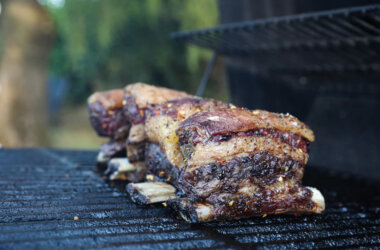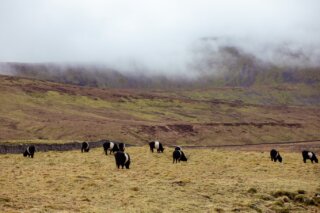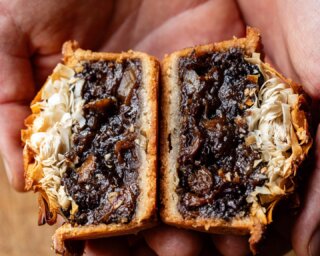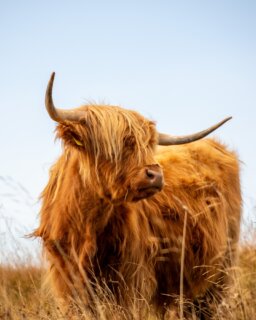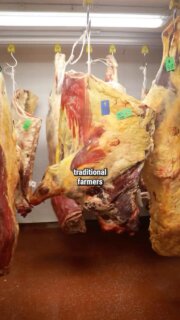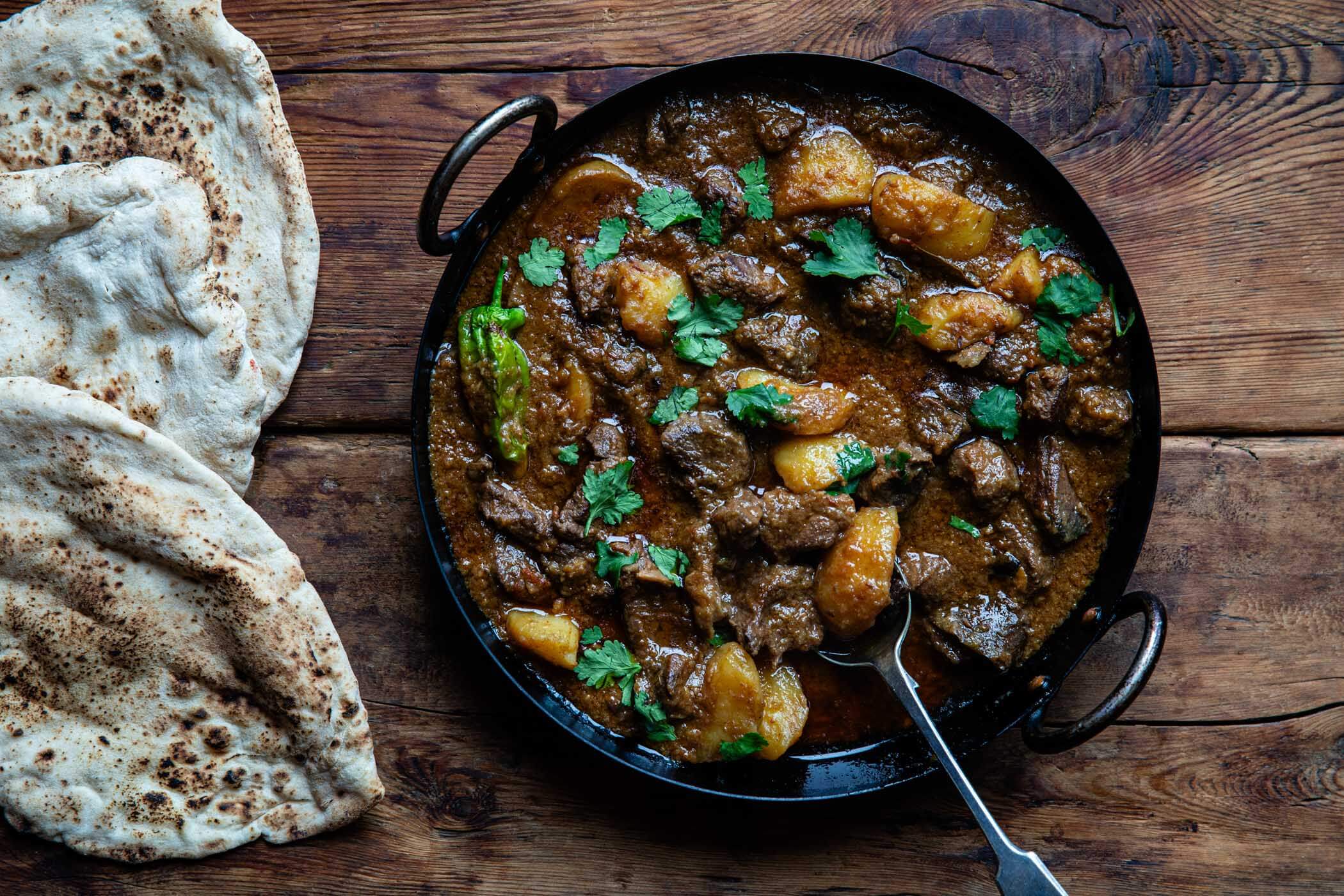
A deliciously complex curry, smoky with black cardamom, fragrant with cinnamon and ginger and fiery with green chilli. Absorbing all these flavours, the potatoes are arguably the star of the show here.
Living in Yorkshire, we are blessed with delicious and varied regional Indian cuisine, of which my favourite is the bold, rustic flavours of the mountainous regions of north India. One of the key details I have realised, from conversations with chefs and home cooks, is the importance of cooking out the spices at each stage – a good indication this has been achieved is when the oil separates. Another is that coriander, a seemingly fragile herb, is often added for a duration of the cooking period, not necessarily at the end of cooking, although often both. The earlier addition bringing out a different, less delicate and more strident flavour. Equally delicious with mutton, lamb or hogget.
Serves: 4
Cook time: 2 hours 30 minutes
Ingredients
For the potatoes
For the masala
Method
- Begin with the potatoes. In a good, non-stick or heavy pan with a moderately high sides and a lid, heat the ghee or oil over a medium heat, add the cumin seeds and bay leaves, sizzle for 30 seconds or so, before adding the potatoes.
- Turn the heat down a touch and fry, turning frequently, for 10 minutes or until evenly coloured golden brown. Remove the potatoes from the pan, leaving as much oil in the pan as possible, and drain on kitchen paper.
- Return the pan to a medium heat. Add the onions, turn over in the oil, then place a lid on the pan – after 2 minutes, lift the lid and stir the onions. Return the lid and repeat this process 3-4 times until the onions are a shade darker than golden brown – this is the basis of a deep flavour and rich sauce.
- Whilst the onions are frying, make the marsala paste – take the ginger, garlic and roughly chopped chilli, and pound in a pestle and mortar with a good pinch of salt to a coarse purée. This can also be done in a small blender, a splash of water may be necessary.
- Add the black and green cardamom pods, the cinnamon, cloves and mace and cook for 1 minute.
- Introduce the marsala paste to the onions and stir until fragrant – 1–2 minutes.
- Add the ground cumin, coriander, Kashmiri chilli powder and turmeric, along with 2 tbsp of water, and continue to cook for 2–3 minutes or until fragrant – the water will evaporate quickly but prevent the spices from catching on the bottom of the pan too much – they will catch a little, but this is fine.
- Add the mutton – the meat will release some moisture initially, continue past this point until the oil has visually separated – this process will take around 10 minutes; turn the meat in the pan regularly.
- Introduce the tomatoes – cook again until the oil has separated, this will take a further 5–10 minutes.
- Now add the lamb stock, chicken stock or water, season with 1 tsp of sea salt and add the whole green chilli, reduce the heat and cover. Cook for 90 minutes, stirring now and again. The meat should be tender to the touch – test, and if necessary, continue to cook for another 15 minutes. If becoming dry add a splash of boiling water.
- Stir the potatoes into the curry.
- 10 minutes after adding the potatoes, add two thirds of the fresh coriander, continue to cook for another 10 minutes – at this stage, judge the sauce – if looking ideal and thickened, return the lid to the pan. If looking a touch too liquid, continue to cook without the lid.
- Test the sauce for seasoning – add a pinch of salt If necessary. Allow the curry to sit, lid on for at least 20 minutes – made a day ahead of time would be ideal.
- Garnish with the remaining fresh coriander. Serve alongside good naan bread or chapatis, or alternatively simply steamed basmati rice.
